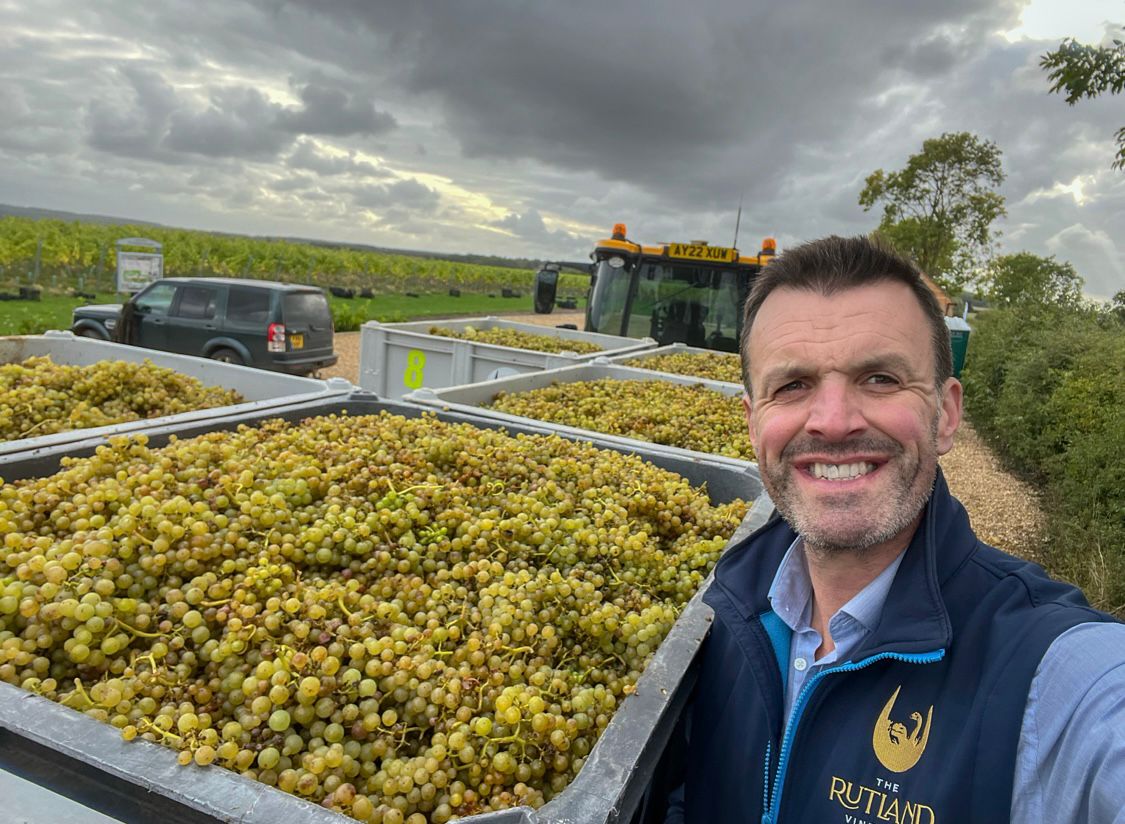- Lincolnshire family diversified 550ha arable enterprise with 20,000 vines, planted in Jurassic limestone soils
- New enterprise ads farm income and welcomes the public with tours, a tasting barn and nature trail
- BASF’s Follow a Farmer series spotlights the family’s sustainable and community-focused diversification
Tim Beaver has been a passionate arable farmer for more than 20 years at Church Farm in South Lincolnshire. Proud to play their part in in producing food, the family’s enterprise is spread across 550ha, growing wheat, sugar beet, spring barley and now grapes in their new venture – The Rutland Vineyard.
In a bid to bring an extra income stream and something more exciting to their existing acreage, as well as build more of a connection with the local community, the Beaver family planted 20,000 vines across seven acres back in 2021 and have since built a tasting barn and opened for tours.
In an inspiring new video launched on BASF’s Follow a Farmer YouTube channel, Tim reflects on the reasons why the family sought to diversify, and the challenges and opportunities it has presented.
“I genuinely believe farming is one of the best jobs in the world, although the pressures are quite harsh as the buck does stop with you, but if you stick by your guns and make choices based on research and your gut feeling, then you have to go with it.”
“One of the fun aspects in the vineyard was to produce a cover crop that would feed the vines going forward. We have planted a 10-way mix of clover and red fescue grasses, and the idea is the red and white clover will increase the mycorrhizal fungi in the soil, increasing our organic matter and keeping the vines strong.”
Rutland Vineyard itself might be a new project, but its story is an historic one. The vines grow in Jurassic limestone soil, with fossils found scattered around the vineyard, visitors, young and old, are encouraged to see what they can find whilst exploring the popular attraction.
Part of the appeal for Tim in the addition of this new enterprise was the opportunity to open up the farm to the general public.
“When it comes to picking grapes, many of the seasonal staff are local retirees who benefit hugely from the social and outdoor environments we work in. Inviting people in also allows us the opportunity to showcase the good work that we are doing for nature, to staff and visitors. It also helps to build a better understanding of the industry overall.”
The land surrounding the vines is diverse and to see it on the vineyard tours really demonstrates the integral link between all the different operations. The land in front of the vines sits under SFI agri-environmental schemes, with the vineyard overlooking the core cereal crop growing.
Complementing the existing diversification, more recently some land has been developed into a kilometre-long thriving nature trail for visitors, with a dog park also being planned so that four legged friends can become part of the network at Rutland.
Watch the full BASF Follow a Farmer video here to discover what makes a good wine, how Tim has incorporated cover crops into the vines, and is proving with his varied operation that farming is the biggest job on earth.

